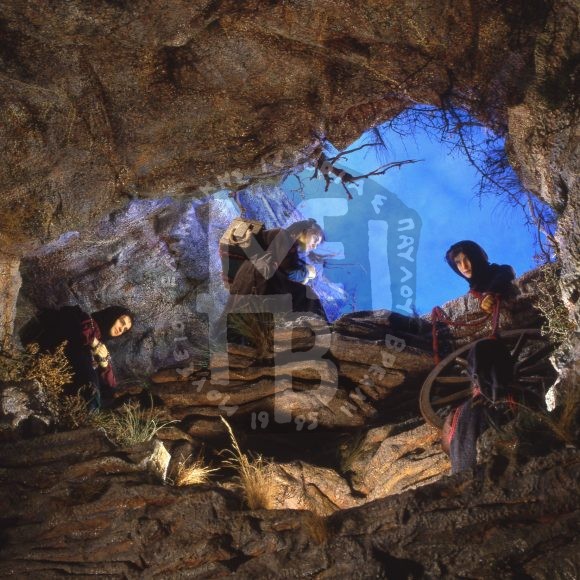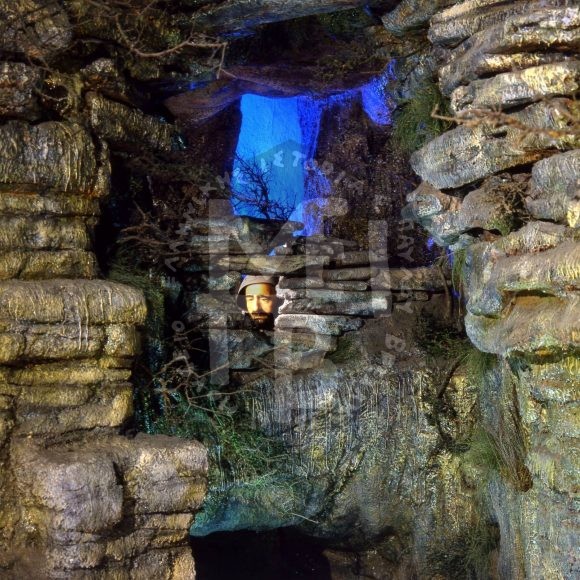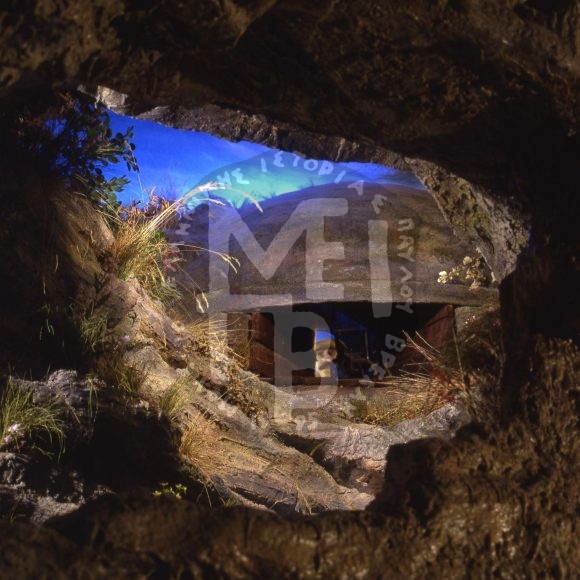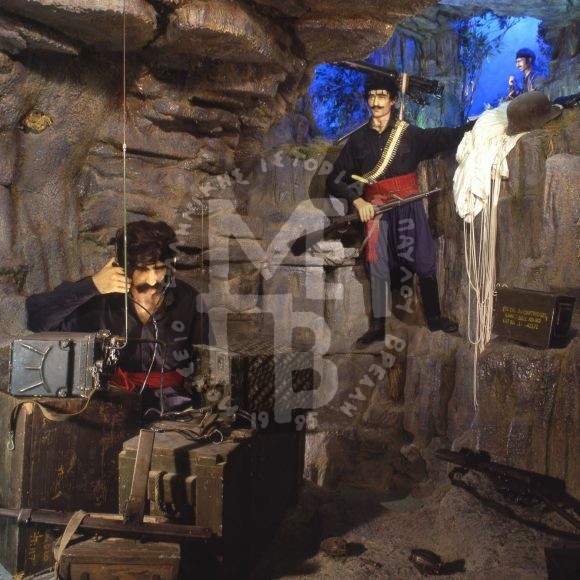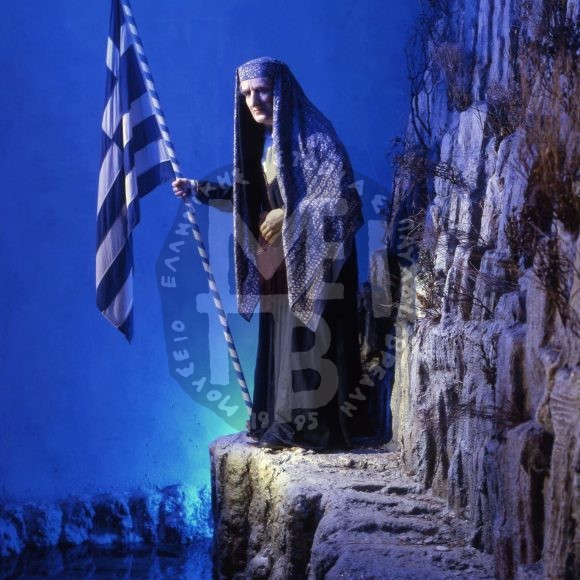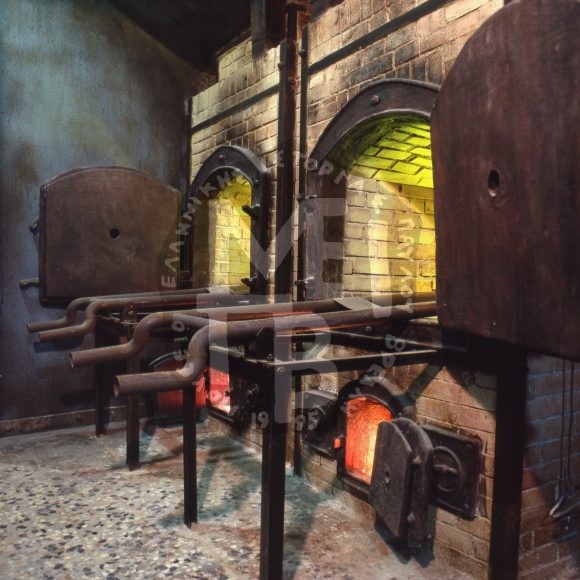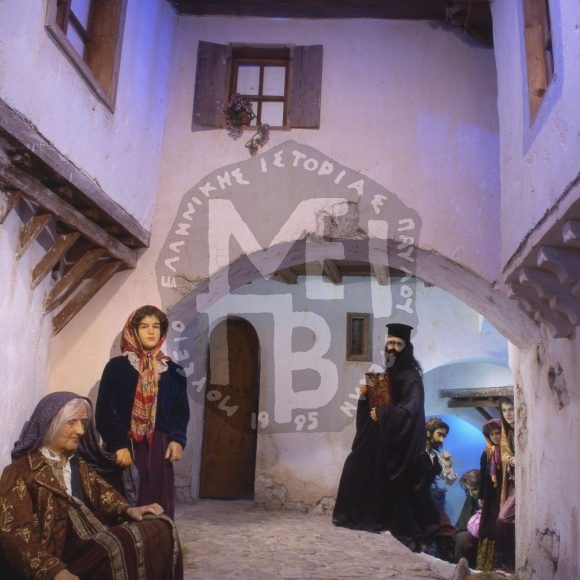“The contribution of the Greek women was of great importance in all the Nations struggles. Always and everywhere she plays a leading role in the significant historical events on land and at sea alike. Thus, there she is again in this hard war of 1940. Their touching contribution was spontaneous and unasked. Those farm women...
Author: Vrellis Museum
Observation Post – Mountain Artillery
“Although it had to cover a front of 180 km of land and 100km of sea coasts, our Artillery –both field and mountain ones– defended Epirus, supported our infantry, managed feats, and brought victories. It turned out to be a ghost both in the invaders’ sleep and while they were awake. In the beginning of...
Mountainous Operational places – Surgeon’s Quarters
“They were first aid stations for the Greek soldiers wounded on the front. Many lives were saved thanks to the prompt treatment and care. The doctors’ contribution and plight was significant. For most historians they are unsung heroes. For the benefited ones their presence was invaluable. Stretcher-bearers or various animals transported the wounded there; women...
Rupel
“On April 6, 1941, the powers of the Axis declared war against Greece. The same way we said ‘NO’ to the Italian fascists on October 28, 1940, we did the same to the German Nazis. Here, on Macedonian soil, the second ‘NO’ was heard that day. From March 1st, Germany had Bulgaria on its side,...
The battle of Crete (20 – 31 May, 1941)
“Crete, which bears fine upstanding men and women, was and still is the first in sacrifice, brave deed, worthiness, heroism and self-sacrifice. As a universal phenomenon, it is a unique case of resistance on part of its civilian population against the German conqueror; resistance not only during the battle itself but also throughout the German...
The lady of Ro Island
“For 34 years, the sole permanent inhabitant of the island across Antifellos, in Asia Minor –a place associated with ancient Lycia– was Despina Achladiotou, the frontierswoman of the Aegean and Greece, ‘the Lady of Ro’. From 1927 until 1961 she lived there and every day she would hoist the Greek flag stating in this way...
German Furnaces
“About 50 million human souls was the death toll of World War Two, a war triggered by Italian Fascism and German Nazism. In Germany there had been camps for hard labor and extermination of political rivals since 1934. About 40 camps of that kind were made aiming at the elimination of human beings; camps like...
Cyprus
“Cyprus, with its 3,000 years of history and Civilization, is not just Greek. It is Greece. It has always been unshakable in its ideals. Cyprus regained its freedom from the English with sacrifice during the struggle they fought between 1955 and 1959. It resisted bravely the betrayal of the powerful ones who supported the Turkish...
Asia Minor (1922)
“Asia Minor Hellenism never vanished. Pontus, Cappadocia, and other areas may have lost their former status, but their inhabitants, like the Ionians and Aeolians in ancient times, inculcated mother Greece. The bitterness of the initial change of residence, since they did not get accepted right away, went away as the time went by and gave...
Reference to the Byzantium
“With the presentation of this theme, I wish to convey an echo, a memory of a great historical era that lasted over 1,100 years – from 330 to 1453 AD. It played a significant cultural role in the civilized world of its time. It was the most civilized state of the medieval world. It shaped...

